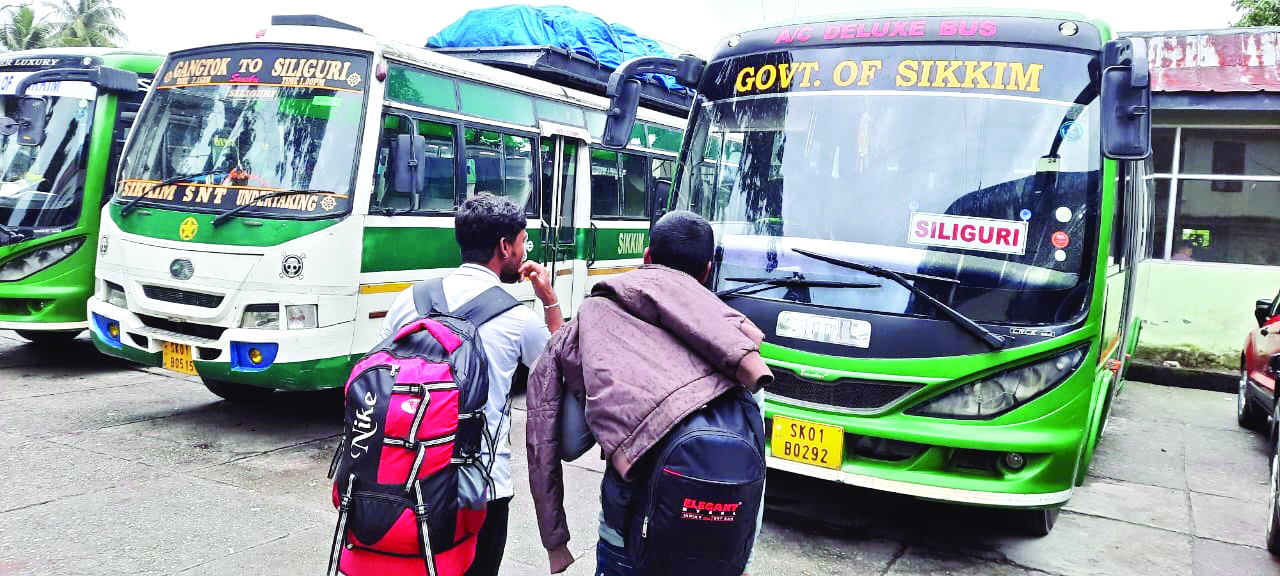Several tourists, labourers stranded in Siliguri

The Sikkim disaster has dealt a severe blow to tourism. From Wednesday morning, all public and private bus services plying between Siliguri and Sikkim were suspended by the Sikkim government. As a result, many tourists who came to Siliguri for a Sikkim tour have been stranded here. Along with tourists, daily-wage labourers have also been stranded. Many tourists were compelled to return.
“We reached Siliguri on Wednesday morning for a Sikkim tour. We heard about the incident when we were on the train. No vehicles are plying to Sikkim. We have to go back home,” said Amrendra Kumar, who came to Siliguri with his family from Andhra Pradesh.
Tanmay Adhikary, from Tripura University who had come with 32 students for a five-day educational tour, said: “This excursion was essential for us. The incident was unfortunate. We will stay in Siliguri for the day and return.”
With the upcoming Puja season, the number of tourists is gradually increasing in North Bengal as well as neighbouring state Sikkim. Everyday, many domestic and foreign tourists leave for Sikkim by taking a bus from Sikkim Nationalised Bus Terminus (SNT) in Siliguri.
The National Highway 10, the link road between Siliguri and Sikkim, has been worst affected. About 30 buses ply between Siliguri to Sikkim. However, private cabs were going to Sikkim via Gorubathan. They were allegedly charging exorbitant fare for the diverted route.
Samrat Sanyal, the Secretary of Himalayan Hospitality and Tourism Development Network said: “This will definitely affect the tourism industry. Currently, we are trying to rescue the stranded tourists. About 2500 tourists are stranded in different areas of Sikkim. We have provided helpline numbers. Our government has been communicating with the Sikkim government. Helpline numbers have been issued by Sikkim and Bengal governments.”
Many daily wage labourers were standard at New Jalpaiguri Railway Station. “We do not have money to book a hotel or pay extra money to go to Sikkim. We will stay in the station premises. If communications resumes we will go to Sikkim,” said Ram Das Yadav, a labourer from Bihar.



